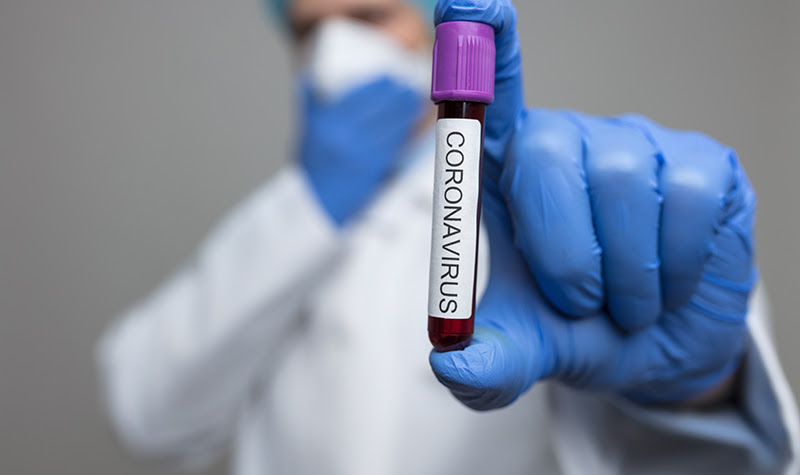It is a last month several research has been highlighted to help cope with the coronavirus pandemic, we have screened its studies for you in order to retain its main lines.
What if after hydroxychloroquine, questioned by the WHO, all eyes turned to cannabis?
As surprising as it may seem, Canadian researchers have just published a study affirming the benefits of the plant against the coronavirus
The inhibition of viral entry and therefore propagation constitute plausible therapeutic paths.
Similar to other respiratory pathogens, the sras-cov2 is transmitted by respiratory droplets, with a potential for aerosol and propagation by contact.
According to their study, still not certified, Canadian researchers have identified thirteen varieties of sativa cannabis which would not treat but prevent infection by the virus
He uses a mediated entry by the receiver into the human host via the angiotensin II converting enzyme (ACE2) which is expressed in pulmonary tissues, as well as in oral and nasal mucous membranes, kidneys, testicles and testicles and testicles and testicles and testicles The gastrointestinal tract. The modulation of ACE2 levels in these gateway tissues can be a plausible strategy to reduce sensitivity to the disease.
Cannabis sativa, in particular a rich in cannabidiol anti-inflammatory cannabinoid (CBD), was proposed to modulate gene expression and inflammation and to accommodate anti-cancer and anti-inflammatory properties.
By working under the Research License of Health Canada, we have developed more than 800 new lines and extracts from Cannabis Sativa and have hypothesized that high content extracts CBD of C. Sativa could be used to modulate the expression of ACE2 in the target tissues of the COVVI-19. The extracts from our C. Sativa lines rich in the most successful and the most innovative, pending a more in-depth investigation, can become a Useful and safe addition to the treatment of COVID-19
as an extra therapy. They can be used to develop easy-to-use preventive treatments in the form of a mouthwash and gargarisms for the throat for clinical and at home. These products must be tested for their potential to reduce viral entry via the oral mucosa.
Given the current disastrous and rapidly evolving epidemiological situation, all possible opportunities and therapeutic ways must be envisaged. The extracts from our C. Sativa lines rich in the most successful and most innovative CBD, pending a more in-depth investigation, can become a useful and safe addition to the treatment of COVID-19 as a Actoint and preventive therapy.

According to another study, can CBD help against the coronavirus?
After examining more than 400 cannabis strains, researchers from the University of Lethbridge focus on a dozen promising strains to provide less fertile land for the coronavirus, said biologist Igor Kovalchuk in Le Calgary Herald.
The hypothesis that the cannabis has the ability of modulate THE receiver of our system endocannabinoid, SO fewer viruses enter the receptors and therefore prevents spread
The CBD demonstrates that it can make people more resistant to the new coronavirus.
THE CBD is not considered a remedy against the coronavirus in humans, but it has many properties Important who responds to the problems felt by people who contract the disease, experts said. THE CBD offer Anti-inflammatory and antibacterial anti-inflammatory properties. These are important for people who contract the coronavirus, nausea, vomit and suffer from inflammation. In addition, CBD is known to reduce stress and anxiety problems. All of these properties are useful for combating disease.

Cbdtech Ensures that its products CBD either are the most high quality, Made in France and closely controlled by a seed strategy to the shelf, which means that its hemp is certified Organic and cultivated in Europe. It has a premium and superior quality, said the company in its recent business presentation. Its extracts being transformed are rich in phyto-cannabinoids and non-psychoactive terpenoids. The product is certified (certification of good manufacturing practices)
Read also: the canine coronavirus
Sources: